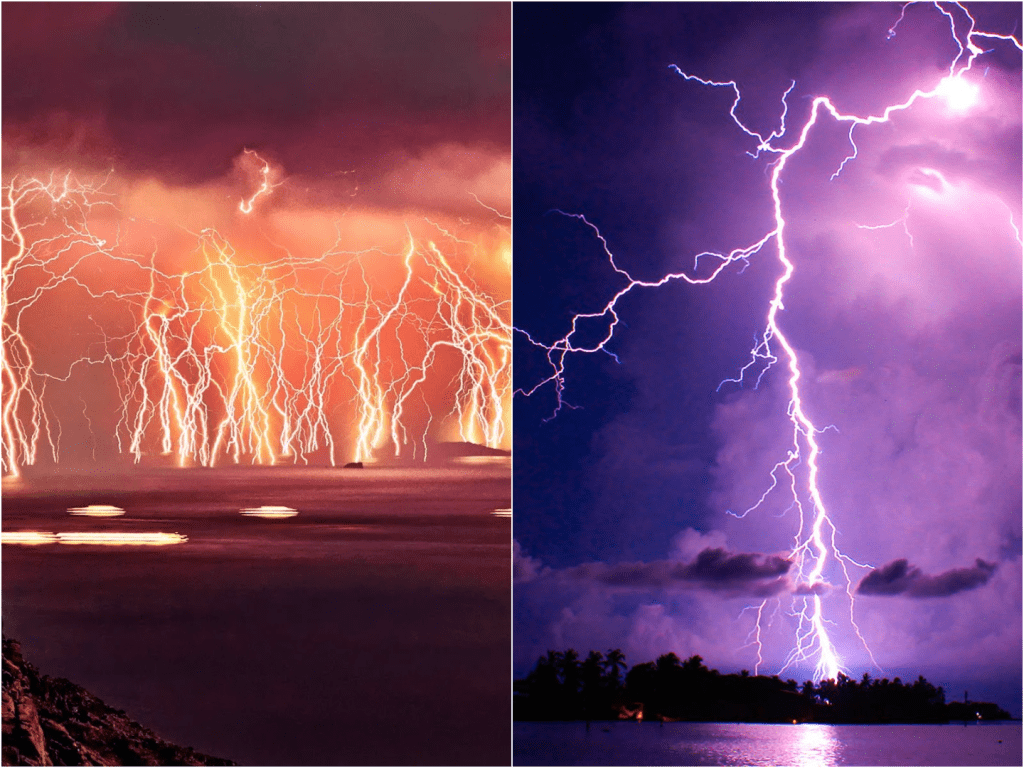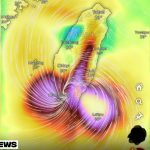Inside Venezuela’s Never-Ending Storm: Lightning Strikes Every Night
A few years ago, I stumbled upon a photo that felt like magic — a sky lit up by countless bolts of lightning over a dark lake at night. That place turned out to be the mouth of the Catatumbo River, where it feeds into Lake Maracaibo in Venezuela. Here, nature puts on a show almost every evening, and locals call it Relámpago del Catatumbo, or “Catatumbo Lightning.” It’s like the sky never sleeps.
The first time I read about it, I pictured a world where storms never rest. This really happens 140 to 160 nights a year, sometimes as long as nine hours a night, with lightning flashing up to 40 times per minute. On a dark night, travelers say they could even read a book by the light dancing above the lake. I could almost feel the electric buzz through the photo.
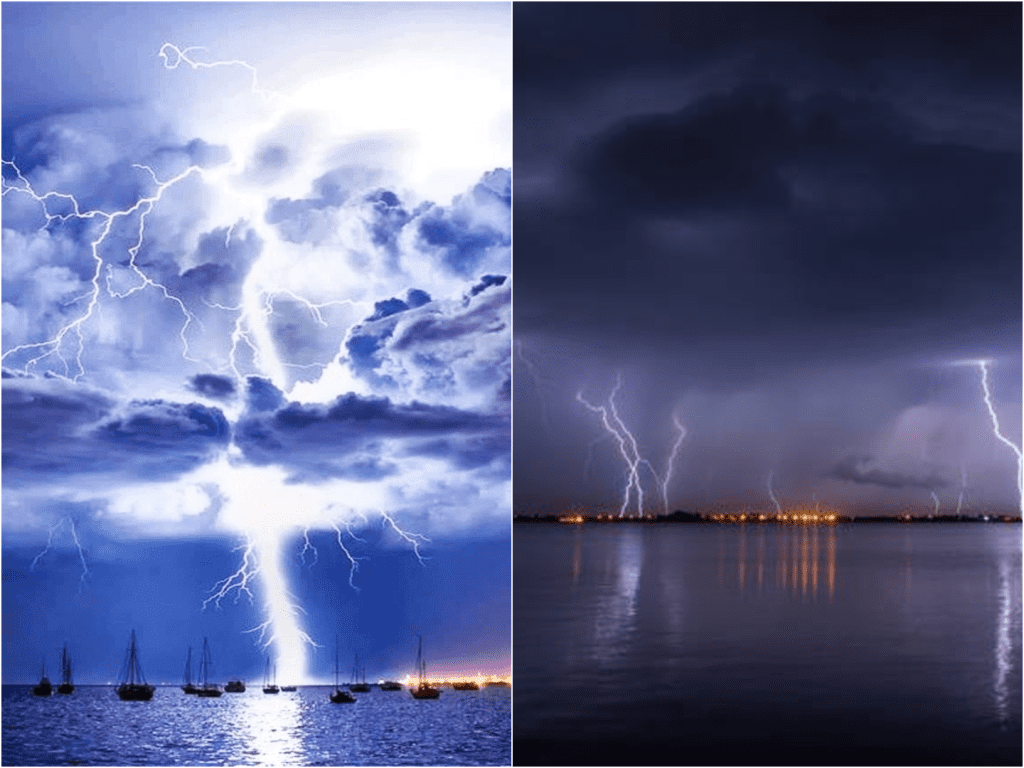
So I started digging deeper. The secret lies in warm humid winds from the Caribbean hitting cold mountain air from the Andes. That clash over the shallow, swampy edges of Lake Maracaibo creates perfect conditions for storms to form and spark lightning night after night. Add in pollution and methane from the marshlands, and you get a setup that almost begs the heavens to light up.
People living in Zulia, the region where this happens, have woven the storm into their culture. The lightning even appears on the state’s flag and coat of arms. Stories say that explorers used it as a kind of lighthouse centuries ago, and it helped guide ships across the lake. Imagine a natural beacon glowing every night for miles, pointing the way home.
On Reddit, someone wrote that the sight is “like real life where lightning strikes never cease,” and that people dodge hundreds of strikes just to witness the show. Another fan said it’s “the world’s most electrifying lightning show.” That kind of excitement bubbles up in stories and captions and makes it feel alive even through a screen.
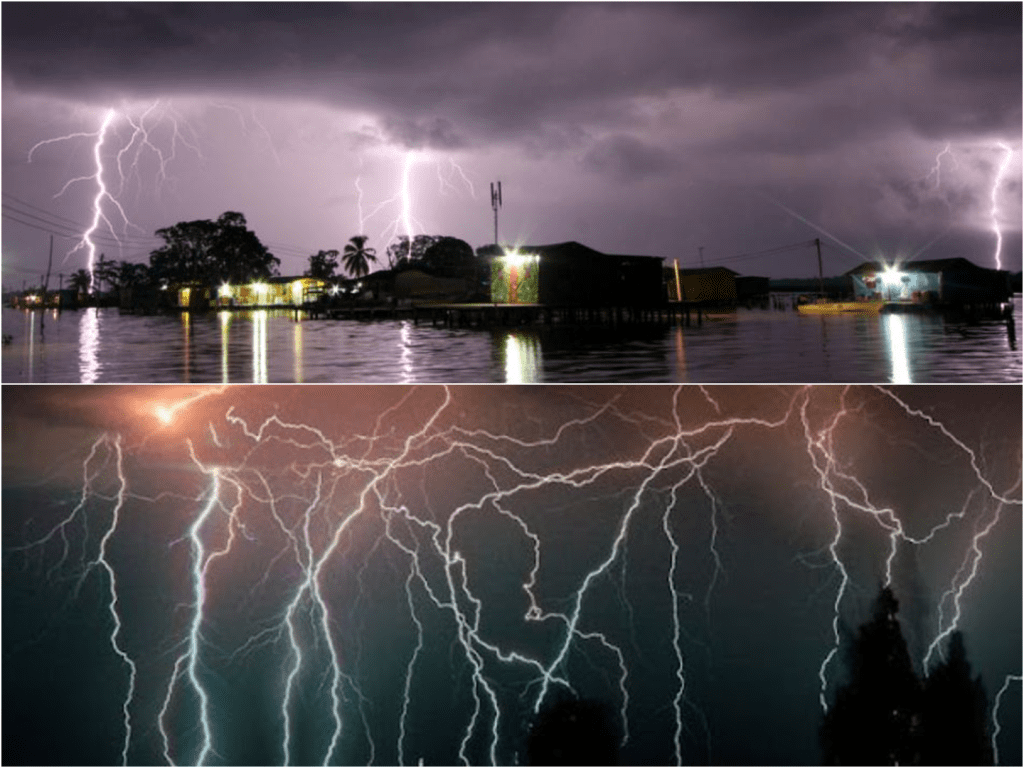
There was a scare in 2010 when the lightning just stopped for a few months because of extreme drought. Scientists worried it might be gone forever. But by mid-year, the storm came back — like the sky simply waited until the weather was ready again.
Watching videos, you see that the flashes happen mostly inside clouds — silent, horizontal bursts that light up everything around them. From a distance, thunder is barely heard. Mostly it’s a long, glowing dance overhead that can seem more like art than weather.
For me, the coolest part is how this storm blends raw power with a kind of steady rhythm. It humbles you, makes you feel small — but also connected to something ancient and vast. Standing by Maracaibo, you’d feel the thunder rolling over water, the air electric, and the sky alive. And yet, life goes on below — the fishing boats, children sleeping, nights filled with light above.
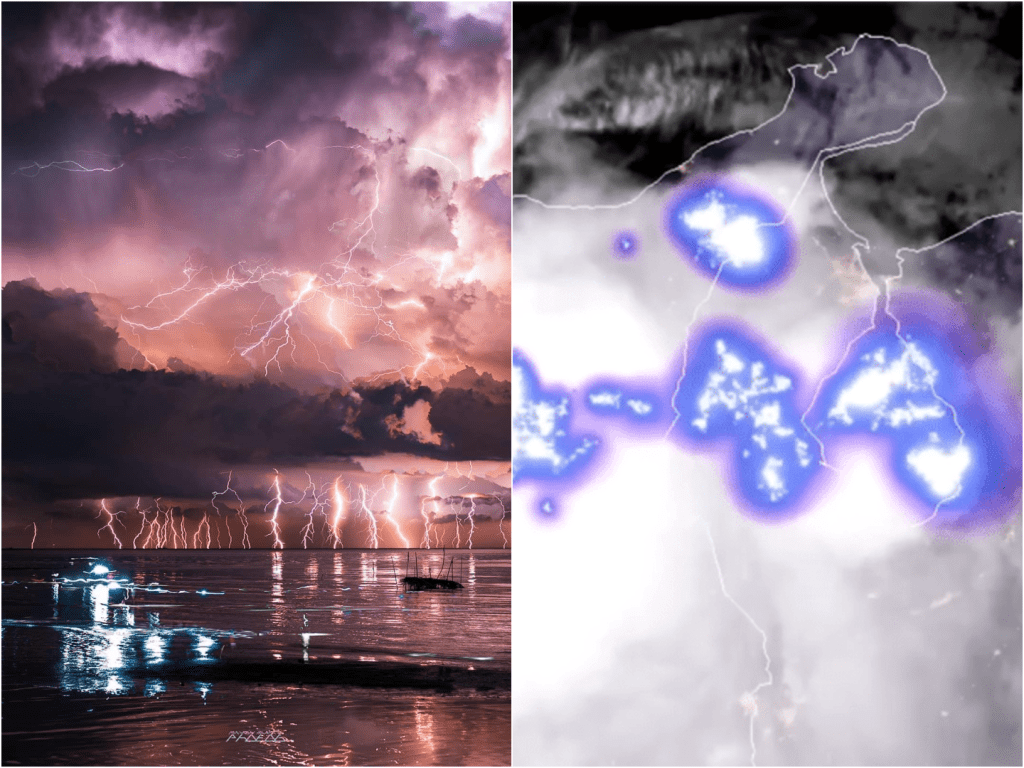
Living in a storm zone might seem scary, but folks in Zulia grow up with it. Boats, homes, and navigation adjust to the lightning. Weather forecasts include the “Catatumbo factor.” Some residents even say the flashes are like nightly fireworks, signaling there’s still magic in the air.
People from around the world come to listen to the thunderless thrum, to photograph streaks of electric lace against the sky. You’ll see cameras pointed at the horizon, waiting for that perfect moment when the sky splits open in a flash. It’s emotionally powerful — most visitors say they feel a mix of awe and calm. One traveler on Reddit wrote that it’s the surreal feeling of being in the eye of a light storm.
But beyond the wow factor, it feels primal. Lightning brings oxygen, helps create ozone, and even crops benefit — far-off energy shaping living things. It’s weather, wonder, chemistry, and culture all rolled into one living light show.
Still, it’s not a tourist theme park. This storm cares nothing about schedules — it’s wild, unpredictable, and alive. You might show up and see nothing for an hour, only to get your heart pounding when the sky cracks open above you.
That’s part of why it feels so real. There’s no guarantee. Just darkness, warm air, and the slow rumble building until suddenly the sky lights up like an old marquee.
For me, Catatumbo Lightning is a reminder that the world still has places that do things no human made. I’m drawn to places where you can stand and feel earth’s power pulsing — where nature bursts its seams in a nightly ritual that’s both ancient and urgent.
And so I keep the picture of that lightning sky saved on my phone. A reminder that some nights earth writes its own story in light — unpredictable, electric, unforgettable. One day I hope to stand by Lake Maracaibo, feeling those flashes overhead and knowing that some wonders are wild, and wonderful, because they can’t be tamed.

Lena Carter is a travel writer and photographer passionate about uncovering the beauty and diversity of the world’s most stunning destinations. With a background in cultural journalism and over five years of experience in travel blogging, she focuses on turning real-world visuals into inspiring stories. Lena believes that every city, village, and natural wonder has a unique story to tell — and she’s here to share it one photo and article at a time.
